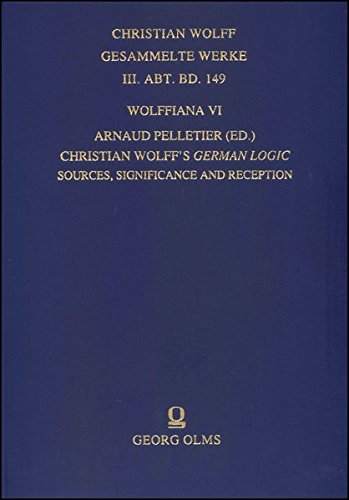- PHI
- FR
- Publications
-
Partager cette page
Christian Wolff's German Logic. Sources, Significance and Reception
Published in 1713, Christian Wolff’s so-called German Logic is one of the most popular and most discussed books in eighteenth-century German philosophy. Generations of students have learned philosophy through this textbook, which played a central role in the invention of the so-called “Leibnizo-Wolffian philosophy”, and thus in the controversies that opposed Wolffians to anti-Wolffians in the first half of the century. This volume gathers studies addressing its context (particularly as regards the definition of philosophy, the notion of invention or the way in which the book shaped an enduring but ill-formed picture of Leibniz), its major developments (on experience, hypothesis or error) and some aspects of its (controversial) reception by Müller, Baumgarten and Kant. These studies show how Christian Wolff’s very first book-length philosophical publication, though largely ignored today, has actually shaped the lexicon and numerous issues of the philosophical German Enlightenment.
AUTEUR
Arnaud Pelletier (dir.)
ANNÉE
2017
ISBN
978-3-487-15561-6
LIEU
Hildesheim
EDITION
Georg Olms Verlag
COLLECTION
Christian Wolff, Gesammelte Werke, III. Abt.: MATERIALIEN UND DOKUMENTE, 149
LIEN
https://www.olms.de/search/Detail.aspx?pr=2009311
PAGES
244

